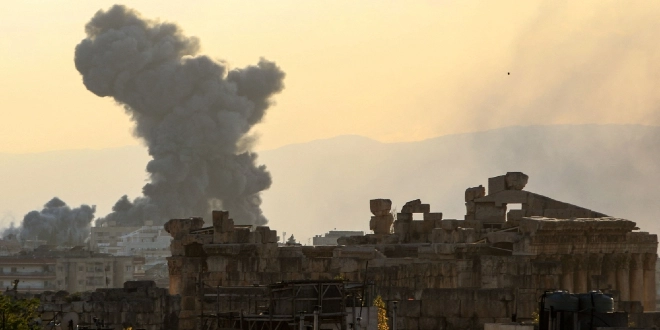Ali Mourad, a law professor, learned through a video that his family’s home in southern Lebanon had been destroyed by Israeli forces. The footage, sent to him by a friend, showed a series of explosions leveling buildings on a hillside, including Mourad’s home in the village of Aitroun, just under a kilometer from the border.
Mourad’s father, an 83-year-old pediatrician, had practiced medicine in that building and lived there since Israel ended its 22-year occupation of southern Lebanon in 2000. The family had fled the area again following the eruption of the current conflict on September 23, which followed a year of intermittent cross-border hostilities starting with the Gaza war.
The southern region of Lebanon, known as a Hezbollah stronghold, has been heavily bombarded by Israeli airstrikes. Hezbollah claims it is now engaged in close-range combat with Israeli forces in border villages after a recent ground incursion.
Mourad, who spent the first two decades of his life unable to visit Aitroun due to Israeli occupation, hopes to pass a connection to this land on to his children, though he fears the ongoing war may sever this bond. For him, returning is not only a right but a way to honor his ancestors and build a future for his children.
Lebanon’s National News Agency reported that Israeli forces have destroyed buildings in at least seven border villages. Israeli media also aired footage showing a presenter with Israeli troops detonating a structure in Aita al-Shaab. On October 26, the National News Agency confirmed that Israel destroyed several homes in the village of Adaisseh. That same day, Israel’s military detonated 400 tons of explosives in a Hezbollah tunnel extending over 1.5 kilometers near Adaisseh.
In Adaisseh, artist Lubnan Baalbaki fears for the family mausoleum where his parents, including his father, the late painter Abdel-Hamid Baalbaki, are buried. The tomb was located in the garden of their now-destroyed home, which had been carefully designed by his father in white stone and clay tiles.
Baalbaki, who monitored the property via satellite images, later saw online videos confirming its destruction. He now fears for the tomb’s condition, describing it as his greatest worry. Losing the tomb, he said, would feel like his parents were “dying a second time.”
Baalbaki’s Adaisseh home contained a vast library and original artworks by his father, preserved as they were left, including a painting still on an easel. His father, who dedicated his life savings to build the house, left behind his art materials, and the loss of the home filled Baalbaki with sorrow, as it was a project deeply woven into their childhood and inspired their love of art and beauty.
The Lebanese National Human Rights Commission has declared Israel’s widespread destruction in southern Lebanon to be a war crime, highlighting the systematic devastation across eight villages between October 2023 and October 2024. Using satellite images and videos shared by Israeli soldiers, the commission reported that Israel’s military demolished homes, schools, mosques, churches, shrines, and archaeological sites with airstrikes, bulldozers, and controlled explosions.
Lebanese rights organization Legal Agenda noted that Israeli strikes obliterated most of Mhaibib, destroying 92 civilian buildings and essential facilities. Investigative journalist Hussein Chaabane emphasized that international law prohibits the targeting of civilian sites, and if a military target is present, the principle of proportionality must still be maintained, which he argued is being disregarded in these attacks.


